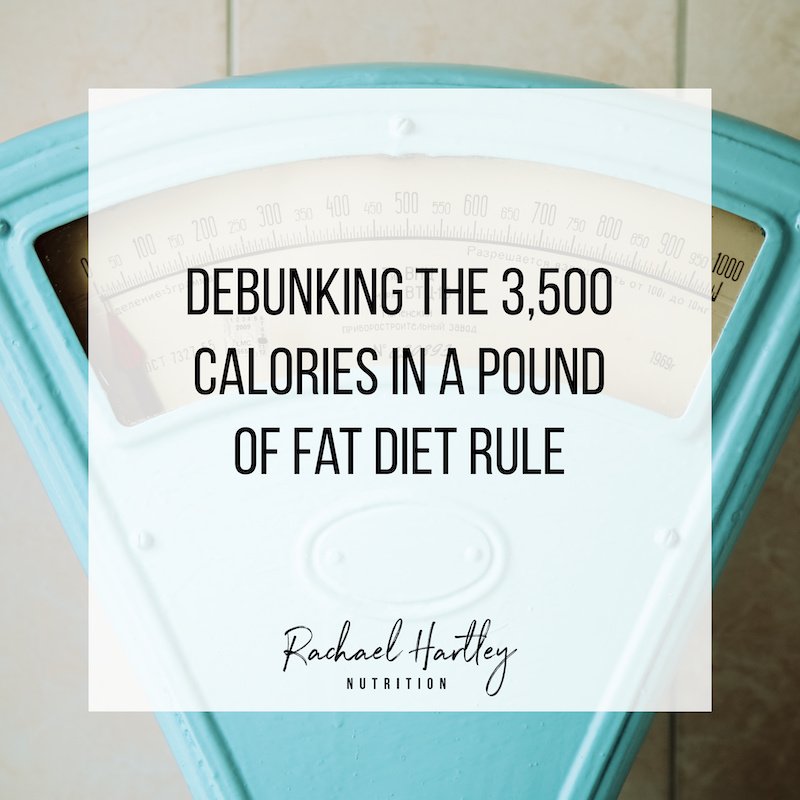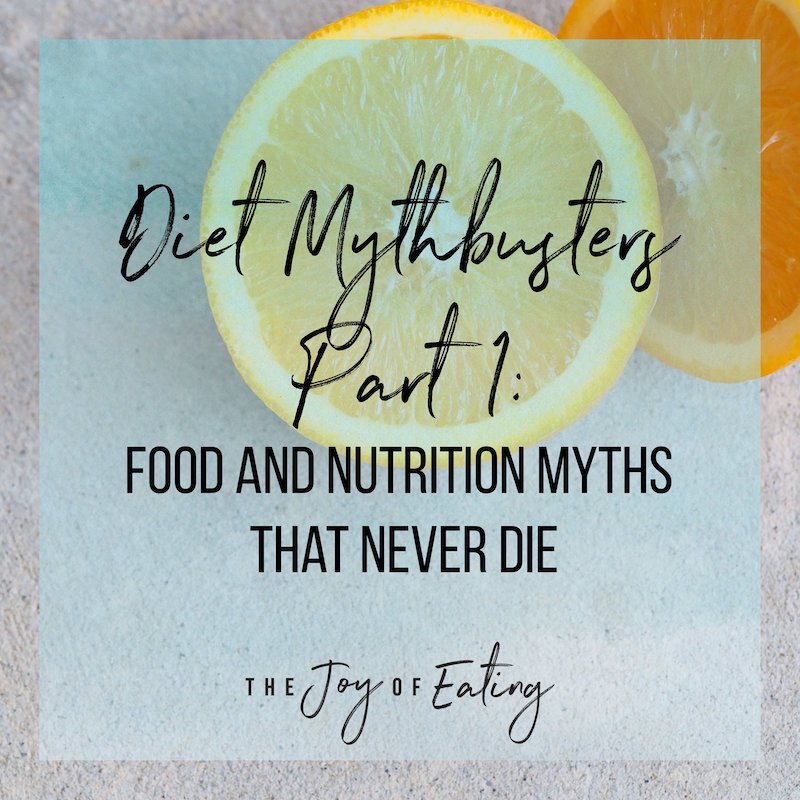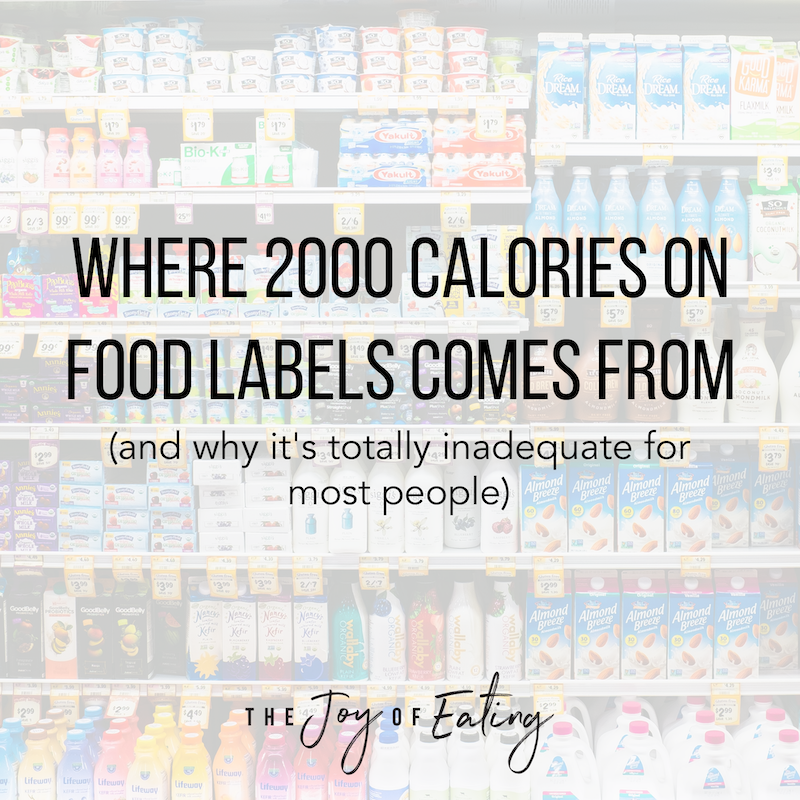Debunking the 3,500 Calories in a Pound of Fat Rule
Want to lose a pound a week? Diet culture says just cut 500 calories a day. It’s as simple as that, right? Wrong. This post debunks the common diet myth of 3,500 calories in a pound of fat.
CW: Discussion of calories, weight and numbers, which perhaps could be gleaned from the title of the article, but just in case 😉
We’ve all heard the “simple” rule to lose a pound a week. A pound of fat supposedly stores 3,500 calories, so if you want to lose a pound a week, just eat 500 calories less a day, exercise them off, or do a little of both. It’s as simple as that!
Except it’s not.
I’m embarrassed to say that early on in my dietetics career, before I practiced from a non-diet lens, this was a piece of advice I gave out on the regular. The 3,500 calorie rule was simple and easy to understand - perfect for those quick diet educations all us RDs have to do when we work inpatient clinical jobs.
It’s pretty horrifying to me now all the misinformation I was taught while in school to become a dietitian, and I went through some pretty solid nutrition programs! As is the case with the 3500 calories in a pound of fat rule, sometimes misinformation is taught because it is simple and consumer friendly, and because they don’t see a downside to it. Because cutting calories when someone wants to lose weight is always healthy, right? If we can teach people an easy way to do that, no harm, no foul.
Except that it does cause harm. Quite a bit actually.
Spreading a falsehood that makes weight loss out to be some simple mathematical equation fuels the diet cycle and yo-yo dieting. When people don’t lose the magical pound a week, they feel like a failure, setting off a cascade of more and more restrictive diets, or a shame and hopelessness fueled eating backlash. It also makes people cut out a pretty significant, and sometimes even dangerous amount of calories, because while yes, there are people out there who could reduce their average caloric intake by 500 calories daily and still be eating an appropriate amount of food, there’s A LOT of people for whom that kind of reduction could put them into eating disorder territory.
The 3,500 calorie rule also does something I talk a lot about with my clients, where it takes a kernel of truth but waters it down or sensationalizes it so it’s no longer helpful or accurate. Diet culture just loves spreading these overly simplified rules!
While the 3500 calories in a pound of fat rule is simple, the reality of human biology is much more complex, and I’d argue much more interesting!
Where does the 3,500 calories in a pound of fat myth come from?
Back in 1958, a doctor and researcher named Max Wishnofsky published a report titled “What is the caloric equivalent of one pound of body weight gained or lost.” In it, he concluded that 1 lb of fat contained approximately 3,500 calories. Since then, his report has been cited thousands of times in some of the most influential medical journals.
It’s a little bit difficult to know exactly what his methods were, as only the first page is available for free online, but it appears he essentially converted the weight of a pound of adipose tissue (aka fat) to grams, corrected for the amount of that adipose tissue that is fluid, proteins, and other non-fat substance. Since we know that 1 gram of animal fat contains about 9 calories, it’s an easy multiplication to arrive at 3,500 calories in a pound a fat.
While a pound of adipose tissue does contain in the range of 3,500 calories, the problem with this fact is how diet culture applies it. By overly simplifying human biology, it creates a rule that promises everyone if you can just do the “right” thing and cut 500 calories a day, you can essentially pick what weight you wan to be.
Here’s what the 3,500 calorie rule gets wrong:
Debunking the 3500 Calories in a Pound of Fat Rule
We do not literally burn fat tissue - but that’s how calories are calculated.
Wonder where the 9 calories in a gram of fat from the aforementioned formula comes from? A bomb calorimeter is a machine that essentially blows up or burns a food and determines the amount of calories that were released by measuring a change in water temperature. Yes, because for all the fearmongering around calories, a calorie is simply unit of energy that represents the amount of energy needed to raise a gram of water 1 degree Celsius. Studies done in the mid-1900s determined how many calories are stored in a gram of fat, protein, and carbohydrate, which is used today to help calculate the Nutrition Facts on food labels.
Now, not to state the obvious, but we are not a bomb calorimeter. As human beings, we do not blow up or burn the food in our belly (although it might feel that way after some meals heh heh heh). Our body breaks food down bit by bit as it goes through our digestive tract, until eventually it is in units small enough to absorb through the intestinal wall. The glucose, amino acids, and fatty acids then are converted to energy through a super exciting metabolic process we spend an entire semester learning and definitely memorize every detail and don’t pull an all-nighter right the day before the exam. Some foods we digest/break down, and thus obtain energy from, better than others. Some people have gut bacteria that is more or less efficient at pulling energy from food. Some people have digestive conditions that affect their ability to absorb energy and nutrients from food. A 500 calorie deficit looks very different from person to person.
A bomb calorimeter, which as you can see, bears very little resemblance to the human digestive tract. Source.
Not only that, but we do not burn fat off our body either. Fat cells shrink as the body uses the energy stored within. Also, initial weight loss is often primarily water weight - fluids lost as you both take in less (food also provides us with fluid) and as your body turns to the liver’s glycogen as a backup fuel supply (since glycogen contains quite a bit of fluid).
Weight science is more complex than calories in, calories out.
Human metabolism is a complex system, much more complicated than the simplistic calories in, calories out approach to weight science makes it out to be. Yes, caloric intake can have an impact on body size. However it’s one of over 100 factors that impact weight. Because these factors interact with each other in dynamic ways, reducing caloric intake doesn’t always result in weight loss. For example, reducing caloric intake could change gut bacteria towards strains that are better at pulling energy from food, or can slow down metabolism (total energy usage) to what I like to call yellow battery mode, like the battery on your iPhone when you get less than 20%. Even if one was able to maintain a 500 calorie daily energy deficit over a long period of time (and that “if” is doing a lot, since your body will fight against a caloric deficit by increasing hunger hormones and the drive to eat), that doesn’t necessarily mean you will lose one pound a week - or that you’ll lose any weight at all.
Metabolism changes as you lose weight
When someone experiences weight loss, there is usually a corresponding drop to their energy usage, or metabolism. Part of that drop is because a smaller body generally takes less energy to power. Another part of the drop is the metabolic effect of caloric deficit. Reducing average caloric intake, especially by a significant amount like 500 calories a day, will slow down energy usage. When the body doesn’t have enough energy to power basic functions, it’ll slow down on non-essential energy-requiring tasks. That’s why people who aren’t eating enough often lose their period or experience a loss of bone mass.
Another thing that happens when someone loses weight from a caloric deficit is that they often lose muscle mass along with fat mass. While people who engage in strength training and are still meeting their basic metabolic needs can preserve muscle mass, let’s face it, most people don’t. Because muscle is a very metabolically active tissue, muscle loss can also slow metabolism.
If the 3,500 calories in a pound of fat rule is a myth, how do I lose weight
To be completely honest, I don’t know. This blog (and nutrition practice) is not geared at dieting and weight loss for good reason. There’s never been a single study that shows more than an incredibly small number of people can lose a significant amount of weight and keep it off for good. The pursuit of weight loss is also not a health neutral one, and may contribute to the very health risks that people are trying to avoid when they diet. As a health care provider who practices from a Health at Every Size® aligned approach, I feel the risks associated with dieting combined with the fact that there is no evidence-based diet that “works” makes it an unethical practice. Diversity in body size naturally exists, including fat bodies, and that diversity adds to our beautiful tapestry of differences as humans.
I’m not in the business of telling people what to do with their body, but I am in the business of giving people information and options, and letting them decide what feels right for them. Not pursuing weight loss is an option that exists - for all body sizes. I’m clearly biased here, but I think learning how to eat more intuitively, in a way that feels good physically and mentally, can be life giving and one of the best ways you can support your health. If you’d like support in stepping away from diet culture and learning how to feed yourself away from the pursuit of weight loss, we work with clients virtually providing intuitive eating coaching. Read more about our services and practice philosophy here.








